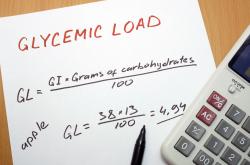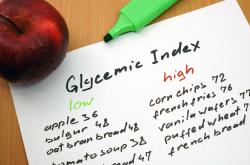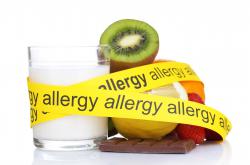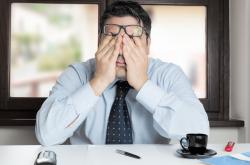Fatigue after Eating: It’s Not As Natural As You Think
The fatigue many people feel after eating a meal can range from mild discomfort to severe tiredness that prevents normal activities. Fatigue after eating may even indicate certain medical conditions. Find out how to identify the cause of your fatigue and what you can do about it.

For millions of people, fatigue that occurs after a meal may seem to be of no concern. After all, there are few people who haven’t experienced the affects of that wave of tiredness that often washes over the body after consuming a large meal. The thing is, though, that this is not how the body is supposed to work! In fact, the consumption of food should have the effect of supplying the body with the nutrients it needs to create energy. You should feel revitalized and more energetic after a meal.
The problem many people fail to understand is that this fatigue can be the sign of a more serious issue when it occurs on a more frequent basis. And, as every fatigue sufferer knows all too well, the type of complete exhaustion experienced by these patients can make it difficult to manage even the most mundane tasks in life.
Since no one can survive without eating, this is one type of fatigue that simply cannot be ignored. The good news is that fatigue after a meal can be addressed in a healthy and proactive way, but only when you recognize what is happening to your body and why. That’s why it is important to learn to identify the symptoms of fatigue after eating, the potential reasons why it is occurring, and the best steps for resolving the issue.
Symptoms of Fatigue after Eating
Fatigue after eating is more than just that feeling of lethargy that many people experience when they eat things like turkey – especially in large quantities. Extreme fatigue involves other symptoms as well, and it is the combination of these symptoms that can prove so problematic for fatigue sufferers. Common fatigue symptoms can include the following:
- An extended period of extreme lethargy
- Problems focusing on tasks or concentrating
- Diminished motivation
- General lack of physical and mental energy
- Physical weakness
- Digestive difficulties
- Dizziness or vertigo
- Alteration in heartbeat
- Fainting
In some instances, these symptoms can be even more severe, and include things like chest pain, migraines, body pain, weight loss, and even fever. When those more severe symptoms occur, it is important to seek medical attention as soon as possible. These may be the sign of a more serious medical emergency that could be potentially life-threatening.
Dietary Reasons You Might Experience Fatigue after Eating
There are a host of reasons why you might experience this level of fatigue after eating a meal. While some are related to the amount or type of food you eat, your dietary choices are far from the only cause. In fact, many different types of medical conditions also result in this same type of exhaustion after eating a meal.
The Foods You Eat
The digestive process takes the nutrients in the food you consume and metabolizes them in a way that increases the blood sugar levels in your body. This results in the release of insulin from the pancreas, which enters the bloodstream and causes both melatonin and serotonin levels to increase within the brain. Since the latter two chemicals have an impact on making you feel sleepy, some mild drowsiness often occurs after eating a big meal – especially when the foods consumed are of a type that metabolizes quickly.
Foods that are broken down over a longer period of time tend to minimize this drowsiness effect. Instead, they promote the steady production of energy as the mitochondrial factories within the cells are provided a regular, dependable supply of nutrients for conversion. Fast-burning foods are quickly converted and just as quickly expended, which is why some foods and drinks might give you a tremendous energy spike for a very limited period of time, but then quickly leave you drained of energy and result in the type of crash that makes you sleepy.
Foods High on the Glycemic Index
There is an entire group of foods that are defined as being high on the glycemic index – meaning that they metabolize very quickly in the body. These foods are among the most common factors in food-related fatigue, as they tend to cause massive increases in blood sugar levels, provoke an over-response of insulin release, and then quickly lead to an energy crash:
- Mashed white potatoes
- White rice
- Ice Cream
- Cookies
- Pudding
- White bread
- Fruit juice
These foods also happen to be carbohydrates, which has led many diet gurus to mistakenly denounce all carbs as being inherently unhealthy. In reality, nothing could be more untrue. Your body is designed to metabolize carbohydrates, fats, and proteins – and all are considered essential for good health. The key is to focus on eating carbohydrates that metabolize more slowly in the body.
Portion Size Matters
In addition to what you eat, how much you consume can also be a factor in fatigue. The fact is that the body can only manage the process of digesting a certain amount of food at a time. Since the blood sugar elevation causes serotonin and melatonin to be released, it stands to reason that you will feel increasingly more lethargic as you eat more. Overeating will also place stress on your digestive system that can lead to indigestion, gas, bloating, and other discomfort.
Food Allergies
Even for those who try to manage their carbohydrate intake and eat moderate portions at every meal, there can still be fatigue issues related to food sensitivities and allergies. This is typically the case in instances where a patient experiences fatigue only after consuming certain types of foods, and is the result of the immune system reacting to the food as if it were a threat to the body. By tracking your responses to certain foods that seem to cause these types of reactions, you can effectively identify any food that triggers such a response and then remove it from your diet to see if that helps.
Medical Reasons You Might Experience Fatigue after Eating
The type and quantity of food that you consume is not the only thing that can cause this fatigue, of course. There are many medical conditions that can also have this effect on the body. If you suspect that any of these may be causing your fatigue, it is important to consult with your physician to develop an effective treatment plan.
Heart Disease
Heart disease can be a major contributor to this type of fatigue, since it directly impacts blood flow. When there is any dysregulation in the flow of blood throughout the body, nutrients are often slow to arrive at the cells. Worse, the stomach often fails to get the blood needed for proper digestion, which can make it difficult for the body to process large quantities of food.
Depression
Depression can cause disruptions in the eating cycle that can lead to fatigue after eating. Often times, people who are depressed may eat a tremendous amount one day, and then barely touch food the next. Naturally, this can disrupt the normal energy production cycle, since the cells are starved one day and glutted the next. That disruption causes the metabolizing of food to be erratic as well.
Kidney Issues
Any problems with the kidneys can result in this type of fatigue after eating, but the effect is more pronounced in those whose diets consist of very salty foods or products that are highly processed. The kidneys struggle to do their job under these conditions, and that added stress can lead to a loss of energy.
Diabetes
Diabetes is a major contributor to food-related fatigue, primarily due to issues with insulin. Since the diabetic’s body lacks the capacity to produce the insulin needed when eating, blood sugar has no effective counterweight to its effects. That’s why diabetics often experience short spikes and major crashes after meals: all that sugar ends up in their cells. Insulin production minimizes the fatigue factor involved with rampant blood sugar levels.
Reactive Hypoglycemia
This is a term used to describe the non-diabetic condition where blood sugar is low several hours after eating a meal. It typically results from things like fasting, or irregular meal routines – and can be resolved in most instances through a commitment to a more consistent dietary regimen and greater attention to balance in the foods you eat.
Other Medical Factors
Sometimes problems related to fatigue after a meal point to an issue with the thyroid. Both thyroiditis (thyroid inflammation) and hypothyroidism (an underactive thyroid) can result in post-meal fatigue. Other times, that after-dinner fatigue can be directly related to anemia, celiac disease, and obesity. Even sleep apnea can play a role in making you fatigued after eating.
How to Address Post-Meal Fatigue
There are three main things to focus on when you are trying to manage this type of fatigue: dietary choices, exercise, and addressing any underlying medical issues that might be aggravating your exhaustion.
Address the Food Issue
It only makes sense to change the types or amounts of food you eat once you identify those factors as being the cause of your fatigue. As a general rule, that means eliminating processed foods from your diet, and relying on healthier whole foods instead. Most whole foods tend to metabolize slower in the body, which leads to a more balanced level of energy created over time, enhanced vitality, and less fatigue.
Lean proteins, complex carbohydrates – with an emphasis on vegetables, and healthy fats can provide the nutrients you need for that better energy production. At the same time, they tend to be free from the sugars, salt, and saturated fats that your body burns through so quickly.
It is also important to adjust how you eat to ensure a more steady supply of nutrients and less stress on the digestive system. If possible, eliminate the habit of relying on two or three big meals each day and instead switch to a regiment that consists of eating five or six smaller meals, with a good balance of foods in each. That can help to ensure that your body maintains a more consistent reserve of nutrients that can be converted to energy throughout the day.
Finally, you have to identify any potential food sensitivities to remove the possibility that those hidden allergies might be causing your fatigue. That requires proactive trial and error with different food items to isolate those that make you feel fatigued, and then removing them from your diet to test your assumption. Once you identify those foods, make a note to never eat them again.
Incorporate Exercise
It might not make sense to you now, but exercise is essential for dealing with fatigue. Yes, you may feel weak and perhaps even sore when fatigue hits, but sometimes you need to force yourself to push past that lethargy and get your body in motion. That increased activity can help to stimulate the circulation system, respiratory activity, and the central nervous system. All of that tends to prime the entire body to do everything that it does in a more efficient manner.
Start any program at a slow pace, of course – and be sure to consult with your doctor to determine which level of exercise is appropriate for your current state of health.
Take Care of Your Medical Needs
All of this effort will be for naught, however, if you fail to address any underlying medical issues that are contributing to the problem. If you suspect a problem but have yet to get a diagnosis, seek one. If you have a condition and are not currently being treated, get the help you need. And if you have a current treatment plan but are for some reason failing to follow it, start by following your doctor’s advice.
The fact is that almost everyone can alleviate the worst effects of this type of fatigue, but only by taking affirmative steps to correct the issue. Regardless of what those steps might entail, you owe it to yourself to make the changes necessary to ensure that you can once again eat without worrying about feeling fatigue afterwards.
You might also be interested in:
- Extreme Fatigue after Meals. http://www.livestrong.com/article/534615-extreme-fatigue-after-meals/
- Fatigue. http://www.emedicinehealth.com/fatigue/page4_em.htm
- I think I have reactive hypoglycemia. How can I address my symptoms? http://www.mayoclinic.org/diseases-conditions/diabetes/expert-answers/reactive-hypoglycemia/faq-20057778
- Why Do I Feel Tired After Eating? http://www.healthline.com/health/food-nutrition/why-do-i-feel-tired-after-eating#3



















Leave a comment